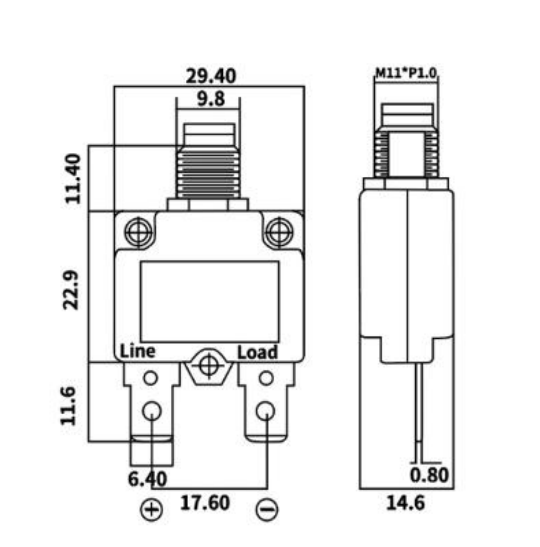The Evolution and Importance of Insulation Tape Manufacturing
Insulation tape, a crucial component in various industrial and household applications, has undergone significant evolution since its inception. Manufacturers of insulation tape play an essential role in delivering products that ensure safety and reliability in electrical, automotive, and construction sectors. This article explores the importance of insulation tape, the manufacturing process, and the future trends in the industry.
Understanding Insulation Tape
Insulation tape, often referred to as electrical tape, is designed to insulate electric wires and other conductors. Its primary function is to prevent electrical leaks and short circuits, thus safeguarding both users and equipment. The tape is typically made from materials such as PVC, vinyl, and rubber, which possess excellent insulating properties and can withstand heat and moisture. Insulation tape comes in various colors, allowing for easy identification of different circuits and enhancing safety during electrical repairs.
The Manufacturing Process
The manufacturing of insulation tape involves several steps, beginning with the selection of raw materials. Manufacturers carefully choose high-quality polymers that exhibit excellent electrical insulation properties. The production process includes extrusion, coating, and winding.
1. Extrusion This is the initial stage where the raw materials are melted and formed into thin sheets. The thickness of the tape is crucial as it impacts both insulating properties and flexibility.
2. Coating After extrusion, the sheets undergo a coating process to apply adhesive layers. The choice of adhesive is vital; it must provide a strong bond while maintaining the tape's electrical insulating properties.
3. Winding The coated sheets are then wound onto spools, ready for cutting into various lengths. Quality control checks are implemented at each stage to ensure that the finished product meets industry standards.
4. Testing Before reaching the market, insulation tapes are subjected to rigorous testing, including assessments for tensile strength, elongation, and dielectric strength. These tests ensure the tape can withstand adverse conditions, such as extreme temperatures and humidity.
Industry Standards and Regulations
Insulation tape manufacturers must comply with various industry standards and regulations to ensure safety and reliability. Organizations such as the American National Standards Institute (ANSI) and Underwriters Laboratories (UL) set guidelines for the production of electrical insulating materials. Compliance with these standards not only enhances product quality but also builds trust with consumers and businesses.
insulation tape manufacturers

Applications in Various Sectors
Insulation tape is widely used across different industries
- Electrical Insulation tape is essential for securing and insulating electrical connections, ensuring that appliances and electrical devices function without hazards
.- Automotive In the automotive industry, insulation tape helps protect wires from abrasion and moisture, contributing to the longevity of vehicles and their electrical systems.
- Construction Contractors use insulation tape for various applications, including plumbing, HVAC, and general repairs. It is particularly valued for its versatility and ability to adhere to different surfaces.
Future Trends in Insulation Tape Manufacturing
As technology advances, the insulation tape manufacturing industry is poised for innovation. Several trends are likely to shape the future of insulation tape
1. Sustainability With increasing awareness of environmental issues, manufacturers are exploring eco-friendly materials and production processes. Biodegradable insulation tapes are gaining traction as companies strive to meet sustainability goals.
2. Smart Insulation Tapes The integration of smart technology into insulation tapes could enhance their functionality. For instance, tapes that can monitor temperature and detect electrical faults may become commonplace.
3. Customization As the demand for specific applications grows, manufacturers may focus on producing customized insulation tape solutions tailored to unique industry needs.
Conclusion
The role of insulation tape manufacturers is significant in ensuring the safety and reliability of electrical systems across various applications. As the industry evolves, manufacturers will need to adapt to emerging trends, focusing on sustainability and technological advancements. By maintaining high standards of quality and embracing innovation, insulation tape will continue to be an indispensable component in both industrial and residential settings.
-
XIANGFAN Rubber Tape-Ultimate Solutions for All Your Insulation NeedsNewsJun.24,2025
-
XIANGFAN Rubber Tape-Protection for Industrial and Residential ApplicationsNewsJun.24,2025
-
XIANGFAN Rubber Tape: Superior Safety and Sealing for Demanding EnvironmentsNewsJun.24,2025
-
XIANGFAN Rubber Tape: Reliable Solutions for Every Electrical ChallengeNewsJun.24,2025
-
XIANGFAN Electrical & Industrial Tape: Powering Reliability Across IndustriesNewsJun.24,2025
-
XIANGFAN Electrical & Industrial Tape: Excellence in Every ApplicationNewsJun.24,2025
